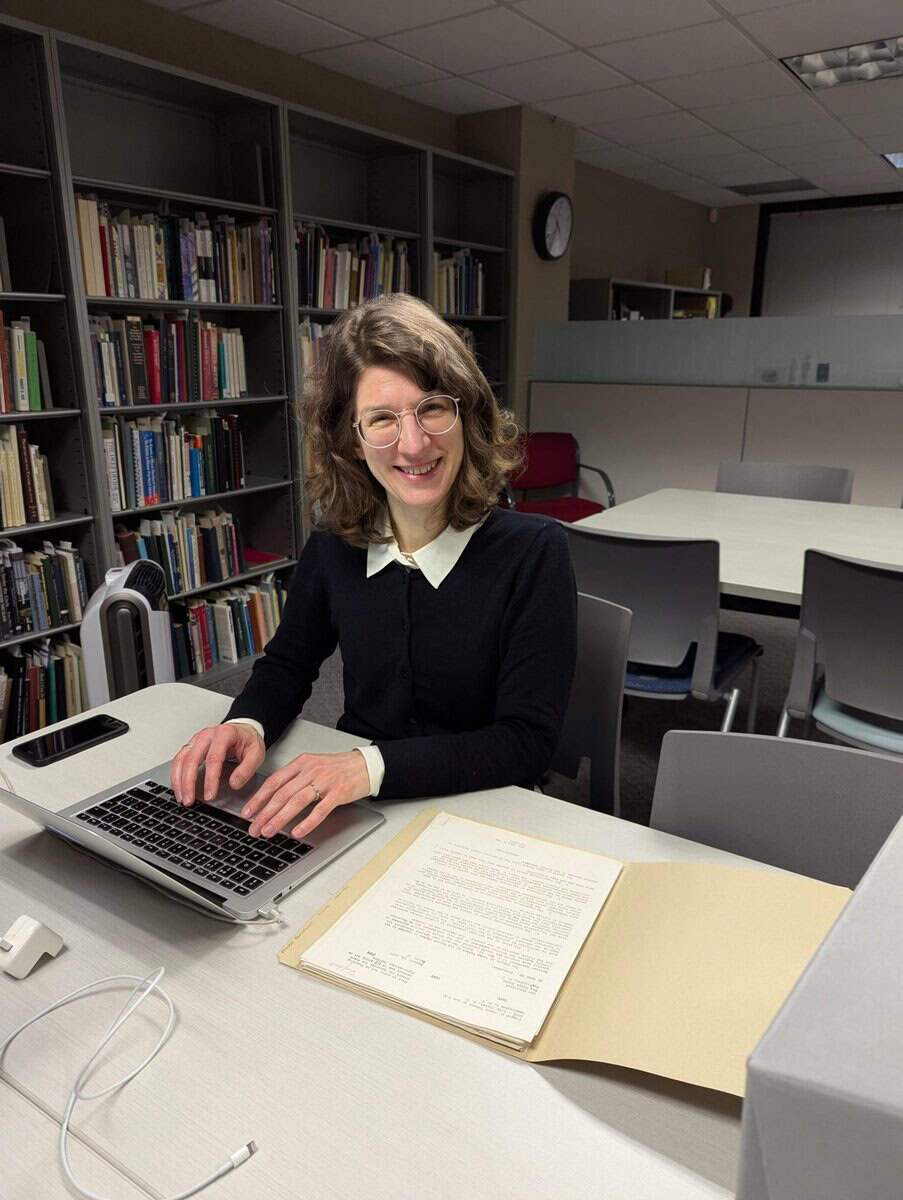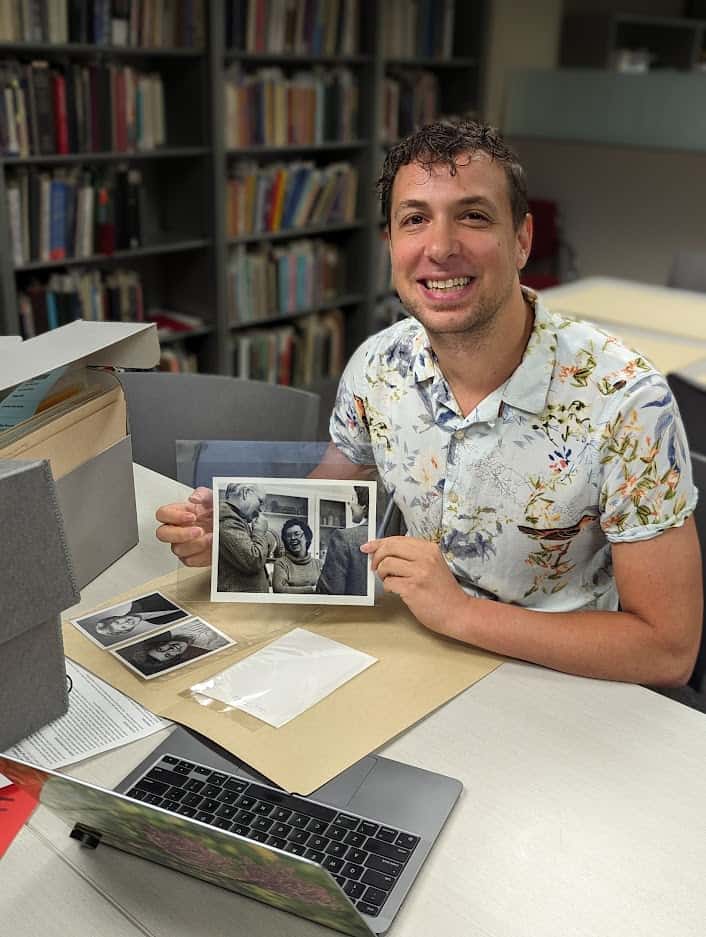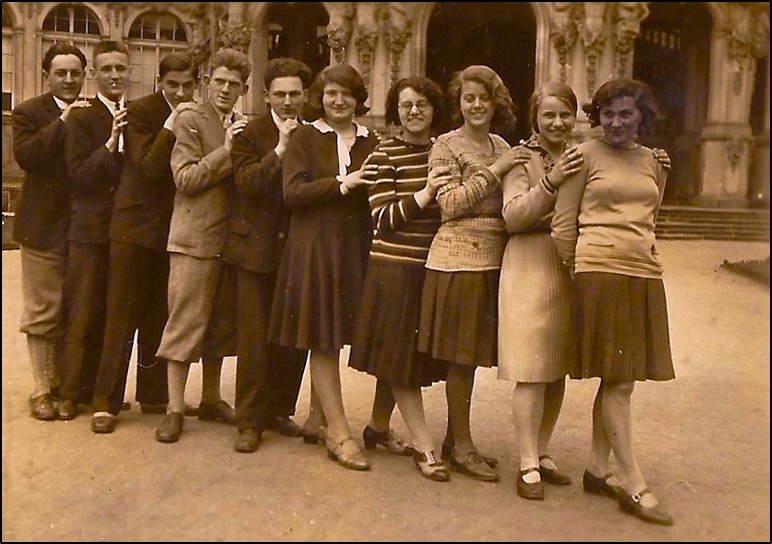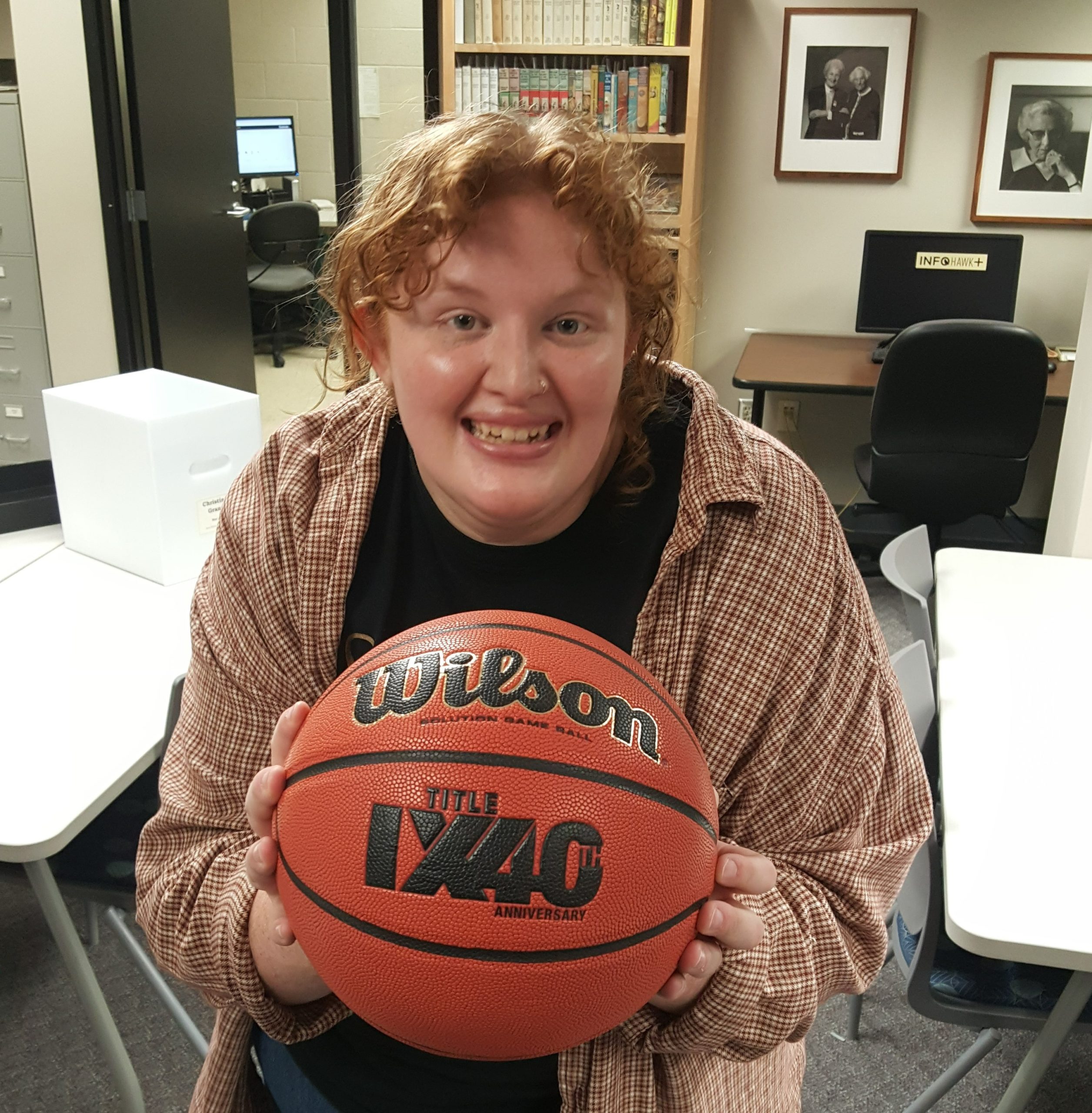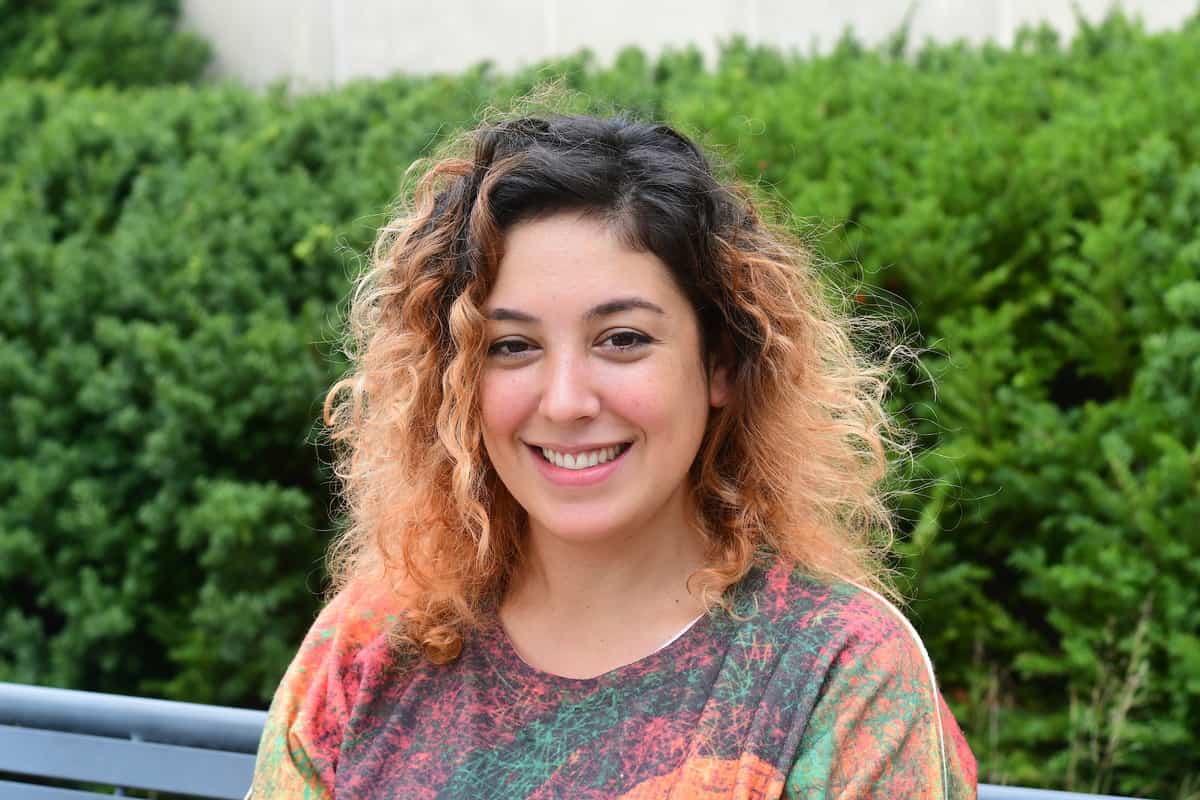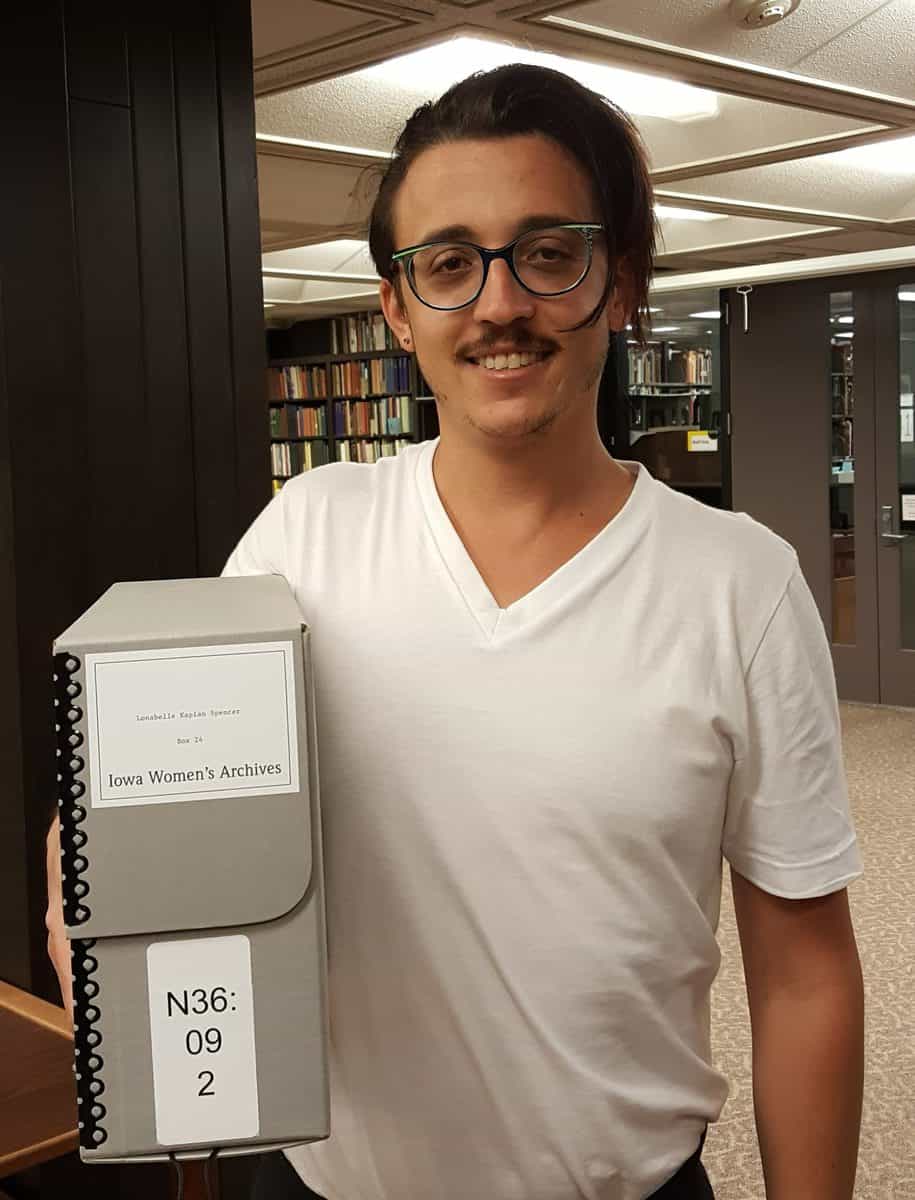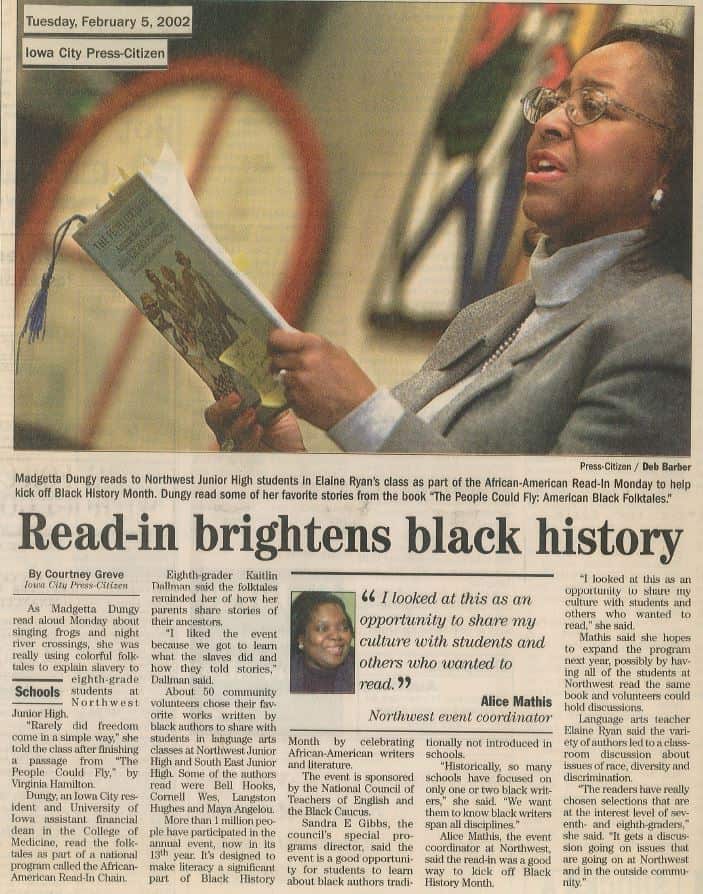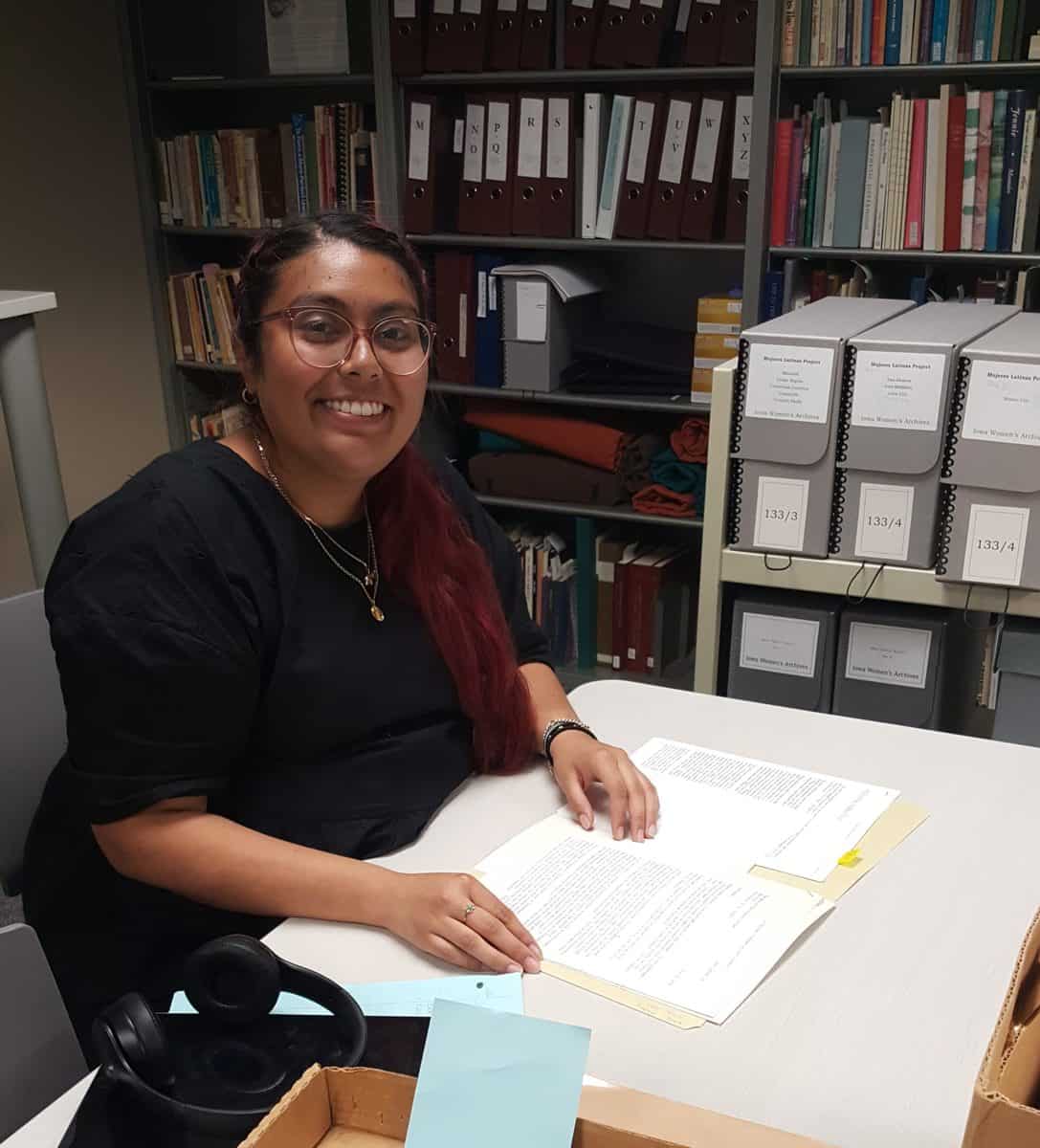UK scholar Katharina Rietzler found more than she’d planned on at UI Libraries. The Linda and Richard Kerber Travel Fund made a second research trip possible.
Category Archives: IWA Update
Gateway, Not Gatekeep: Penny Furgerson’s Gateway Dance Theatre of Des Moines, Iowa
In 1977, Des Moines civil rights activist, Edna Griffin, wrote a strongly worded opinion piece defending the a local dance studio, the Gateway Dance Theatre. But why? In this piece, IWA student assistant Kelly Kemp explores the connection between civil rights and dance through the papers of Gateway’s founder, Penny Furgerson.
Kerber Grant Recipient Ezra Temko Delves into Gender Parity in Politics at IWA
Every year, the Linda and Richard Kerber Travel Grant allows researchers from across the country to come to Iowa City and use the Iowa Women’s Archives’ collections. Ezra Temko, is the grant’s first second-time winner. He first visited the IWA in 2018 as a PhD candidate in Sociology from the University of New Hampshire, where hisContinue reading “Kerber Grant Recipient Ezra Temko Delves into Gender Parity in Politics at IWA”
Kick off Women’s History Month with the Iowa Women’s Archives
The Iowa Women’s Archives (IWA) will kick off Women’s History Month with an event at the Iowa City Public Library! Welcoming the Immigrants: Refugee Resettlement in Jewish Iowa will bring Dr. Jeannette Gabriel of the Schwalb Center for Israel & Jewish Studies at theUniversity of Nebraska-Omaha to Iowa City. In her talk, Gabriel will useContinue reading “Kick off Women’s History Month with the Iowa Women’s Archives”
Six-on-Six Basketball: Gone but Not Forgotten
The following post was written by IWA Graduate Assistant, Emma Barton-Norris. Six-on-six girls’ basketball was extremely important in Iowa, to both those who played the game and to those who made the trek to attend the annual Iowa State Championship every year. In the newly processed collection, Six-on-Six Girls Basketball in Iowa ephemera, the storiesContinue reading “Six-on-Six Basketball: Gone but Not Forgotten”
Community collaboration brings Latinx History from the archives to the classroom
This fall, Yamila Transtenvot, an instructor in Spanish at Cornell College, has been working with IWA, The League of United Latin American Citizens (LULAC) Council 10, and the Davenport Community School District (DCSD) to bring primary sources about Latino/a/x history to Iowa schools. I sat down with Transtenvot this Latinx Heritage Month to discuss thisContinue reading “Community collaboration brings Latinx History from the archives to the classroom”
IWA’s 2021 Kerber Grant Recipient Finds Personal Stories within Industrial Agriculture
In Box 24 of the Lonabelle Kaplan Spencer papers, Andrew Seber finally found exactly what he was looking for: personal testimonies by rural citizens whose lives were turned upside down by the development of hog confinements near their Iowa homes. Seber’s dissertation, Neither Factory nor Farm: the Other Environmental Movement, will focus on industrial animalContinue reading “IWA’s 2021 Kerber Grant Recipient Finds Personal Stories within Industrial Agriculture”
Student Reflection: Processing the Madgetta Dungy Papers
The following post is written by University of Iowa senior, Jack Kamp. When I started my internship at the Iowa Women’s Archives (IWA), I knew I was interested in working with Black women’s history. As a student interested in the history of civil rights and social justice, I knew that this collection would giveContinue reading “Student Reflection: Processing the Madgetta Dungy Papers”
IWA’s 2020 Kerber Grant Recipient: Yazmin Gomez
After the pandemic postponed her research trip, Yazmin Gomez, the 2020 Linda and Richard Kerber Travel Grant recipient, finally made it to IWA! Linda Kerber, May Brodbeck Professor in the Liberal Arts and Professor of History Emerita, and her husband Richard founded this grant to help researchers, especially graduate students, travel to the Iowa Women’sContinue reading “IWA’s 2020 Kerber Grant Recipient: Yazmin Gomez”
Kerber Travel Grant Application Deadline Extended
Due to the ongoing closure of library facilities around the country, the Iowa Women’s Archives has extended the application deadline for the Linda and Richard Kerber travel grant to June 1st, 2020. Because we are uncertain about when the Archives will be accessible, the time period in which recipients can use the funds has beenContinue reading “Kerber Travel Grant Application Deadline Extended”
